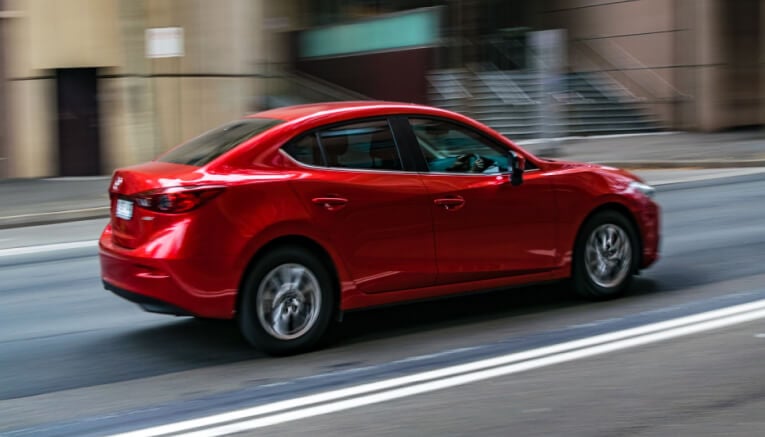Navigating the intricacies of using a company vehicle for personal purposes is a topic that often treads the fine line between convenience and compliance. On the surface, the privilege of driving a company car for personal errands or commutes appears as a straightforward, appealing perk offered by employers.
However, beneath this seemingly simple benefit lies a complex web of rules and tax implications that both employers and employees must carefully consider. This article is designed to help companies and their drivers know everything they need to know about the personal use of company vehicles.
Personal Use of Company Vehicles Guide: Understanding Company Vehicle Policy
When it comes to the use of company vehicles, policies can vary significantly from one organization to another. However, certain commonalities tend to exist, providing a general framework for understanding how most companies approach this perk.
Typically, company vehicle policies are designed to outline the permissible uses of the vehicle, establish guidelines for both personal and business use, and set forth the procedures for reporting and accountability.
Related: Mileage Reimbursement Requirements By State | Which States Require Mileage Reimbursement?
Distinction Between Personal and Business Use of Vehicles
A key aspect of these policies is the distinction between personal and business use. Business use is straightforward, encompassing all driving activities directly related to the job.
Personal use, on the other hand, typically includes commuting to and from work, running personal errands, and any travel that is not directly related to work responsibilities. Some companies might allow for a certain degree of personal use, recognizing it as a fringe benefit, while others may restrict it completely.
The delineation between these two types of use is not just a matter of policy but also a critical factor in tax and insurance considerations. Personal use of a company vehicle is often considered a taxable benefit by tax authorities, and this needs to be accounted for both by the employer and the employee.
Personal Use of Company Vehicles Guide: Tax Implications of Personal Use
The personal use of a company vehicle extends beyond the convenience it offers; it also introduces significant tax considerations. Under US tax laws, personal use of a company vehicle is typically classified as a non-cash fringe benefit.

This classification has direct implications for both the employer and the employee in terms of tax liabilities and reporting responsibilities.
Overview of Personal Use of Company Vehicles as a Taxable Non-Cash Fringe Benefit
A non-cash fringe benefit is a form of payment for services. In the context of company vehicles, when an employee uses the vehicle for personal purposes, this use is considered a part of their compensation package.
Explanation of How the IRS Views Personal Use of Company Vehicles
The Internal Revenue Service (IRS) has specific guidelines for determining the value of this personal use and how it should be reported. The IRS generally requires employers to calculate the value of personal use and include it in the employee’s taxable income.
There are several methods to calculate this value, such as the Annual Lease Value (ALV) method or the Cents-Per-Mile rule, and the choice of method can depend on various factors, including the type of vehicle and its usage.
Related: Car Allowance Vs. Mileage Reimbursement Explained | Which Method Is Right For Your Business?
However, unlike regular wages, this form of compensation does not come in the form of cash but as a benefit-in-kind, which still holds monetary value. As a result, the value of personal use of a company vehicle is subject to taxation.
Personal Use of Company Vehicles Guide: Recording Mileage and Tracking Usage
Accurate record-keeping is the cornerstone of managing the personal and business use of company vehicles. Not only does it ensure compliance with tax laws and company policies, but it also aids in providing clear documentation in the event of audits or discrepancies.
Importance of Accurate Record-Keeping for Personal and Business Use of Company Vehicles
Accurate record-keeping helps distinguish between personal and business use of a company vehicle, which is essential for tax reporting and compliance. It involves tracking the mileage for each trip, the date, the purpose of the trip, and the destination.
This information is crucial for employers to accurately calculate the taxable benefit of the vehicle’s personal use and for employees to understand their tax liabilities.
Tools and Methods for Tracking Mileage
There are several methods and tools available for tracking vehicle usage, ranging from manual logs to advanced digital solutions:
- Manual Logbooks: A traditional approach where drivers record details of each trip in a paper spreadsheet or logbook. This method requires diligence and accuracy in noting down the date, purpose, and mileage for every trip.
- Mileage Tracker Apps: Modern mileage tracker apps like TripLog offer automatic mileage tracking. These apps use GPS technology to record trip details automatically. They often come with features that allow users to categorize trips as business or personal easily, and some can generate reports that are compliant with IRS requirements.
- Integrated Vehicle Systems: Some company vehicles come equipped with built-in tracking systems that automatically record trip details and mileage, offering a seamless way to differentiate between personal and business use.
Related: Employee Expense Reimbursement Explained (Full 2024 Guide)
Personal Use of Company Vehicles Guide: Best Practices for Personal Use
Personal use of a company vehicle typically includes activities like:
- Commuting: Traveling between home and the workplace.
- Errands: Using the vehicle for personal tasks, such as grocery shopping or picking up children from school.
- Emergency Situations: Unplanned use for urgent personal matters.
However, it’s important to note that what constitutes permissible personal use can vary based on an employer’s specific policy. Employees should always refer to their company’s vehicle use policy for exact details and limitations.
Exceptions and Special Circumstances
There are scenarios where the line between personal and business use might blur, such as:
- Mixed-Use Trips: Journeys that combine business and personal activities, like visiting a client en route to a personal destination.
- Temporary Use: Occasions where an employee might need to use the vehicle for personal reasons, like a company car being the only available vehicle during a personal car’s repair.
- Special Company Events: Use of the vehicle for company-sponsored events that might have a personal enjoyment component, like a team retreat.
In such cases, it’s essential to understand how these uses fit into the broader context of the company’s policy and tax implications.
Tips for Staying Compliant with Company Policy and Tax Laws
- Understand Your Company’s Policy: Familiarize yourself thoroughly with your company’s specific vehicle use policy.
- Keep Accurate Records: Maintain detailed logs of your vehicle use, categorizing each trip as either personal or business.
- Stay Informed About Tax Laws: Be aware of how personal use impacts your tax situation and what records you need to keep for tax purposes.
- Seek Clarification When in Doubt: If you’re unsure about whether a particular use is permissible, seek clarification from your employer or HR department.
- Use Discretion: Even if personal use is allowed, use the vehicle in a manner that is respectful of the privilege and mindful of your employer’s resources.
- Report Honestly: Always provide accurate information about your vehicle use to your employer, especially in cases where personal use is being recorded for tax purposes.
Related: Expense Report Automation Explained | How To Automate Your Company’s Expense Management
By following these best practices, employees can enjoy the benefits of a company vehicle while ensuring compliance with both company guidelines and tax regulations.


Personal Use of Company Vehicles Guide: Repayment and Compensation Considerations
The personal use of a company vehicle, while a convenient perk, can have financial implications that both employers and employees need to manage. This section explores various options for compensating personal use, explains how the value of this use is calculated, and presents examples of approaches companies might adopt.
Options for Employees to Compensate for Personal Use
When employees use a company vehicle for personal purposes, there are several ways they can compensate for this use:
- Payroll Deductions: One common method is through payroll deductions. Here, the employer calculates the value of personal use and deducts this amount from the employee’s paycheck. This approach simplifies tax reporting and ensures that the correct amount is accounted for.
- Flat Fee Arrangements: Some companies may opt for a flat fee system, where employees pay a fixed amount regularly for personal use, regardless of the actual usage.
- Reimbursement Based on Mileage: Another approach is for employees to reimburse the company based on the number of personal miles driven. This requires accurate mileage tracking and a pre-determined rate per mile.
Calculating the Value of Personal Use
The value of personal use is typically calculated based on IRS guidelines. There are a few different methods:
- Annual Lease Value (ALV) Method: This method involves using IRS-provided tables to find the annual lease value of the vehicle, which is then prorated based on the proportion of personal use.
- Cents-Per-Mile Rule: This straightforward approach calculates the value of personal use based on the IRS standard mileage rate multiplied by the total personal miles driven.
- Commuting Rule: For employees who primarily use the vehicle for commuting, a flat daily rate can be applied for each day the vehicle is used for personal commuting.
The chosen method should align with IRS regulations and the specific circumstances of the vehicle use.
Examples of Different Approaches Companies Might Take
- Full Personal Use Allowance: Some companies may allow unrestricted personal use and cover all associated costs, treating it as a fully taxable fringe benefit.
- Limited Personal Use with Reimbursement: In this approach, companies allow limited personal use but require employees to reimburse for that use, either through payroll deductions or a flat fee.
- Strictly Business Use Only: Some organizations may restrict the use of company vehicles to business purposes only, with no allowance for personal use.
- Customized Policies for Executive Employees: High-level employees might have different terms that include more lenient personal use policies and higher-end vehicle options.
Related: Manual Expense Reports: The Hidden Costs
The approach to compensating for the personal use of a company vehicle varies between companies and depends on numerous factors including company policy, the nature of the employee’s role, and tax considerations. Both employers and employees should understand these nuances to ensure a fair and compliant use of company vehicles.
Personal Use of Company Vehicles Guide: Conclusion
Navigating the personal use of company vehicles doesn’t have to be difficult. TripLog is an all-in-one platform built to help companies manage their mobile employees.
Schedule an introductory call with our sales team today to learn how TripLog can help your company meet its financial goals, as well as save significant amounts of time and effort!









